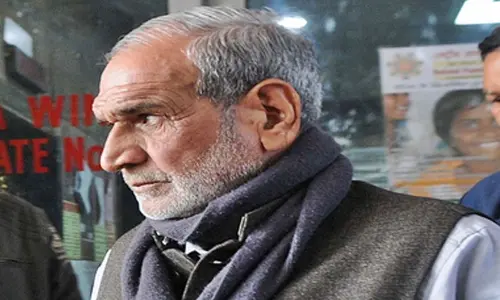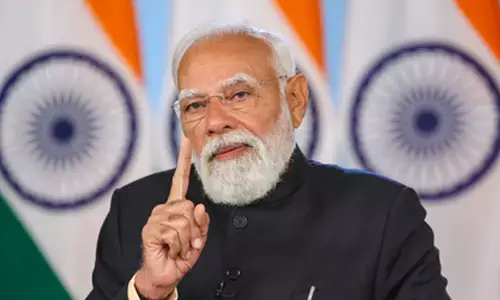Covid variants seen more in some States

Covid variants seen more in some States
Closer surveillance is needed to properly understand the spread of N440K: CCMB
Tarnaka: A few novel variants of coronavirus are spreading more in some states in India and there is emerging evidence that the N440K mutation is spreading a lot more in southern states, says a study by the Centre for Cellular and Molecular Biology (CCMB).
The CCMB Director and corresponding author on the study, Dr Rakesh Misha, on Friday said that closer surveillance is needed to properly understand the spread of N440K.
In a recent publication, scientists from CSIR-CCMB presented an exhaustive analysis of over 5,000 coronavirus variants in India and how they have evolved over the course of the pandemic. "The novel variants that are worrying many countries globally, have been identified with only a low prevalence in India so far.
These include the variants with immune-escape E484K mutation and the N501Y mutation with higher transmission rate. However, their apparent low prevalence might be simply because not enough sequencing has been done," he added. Dr Mishra believes that more coronavirus genomes need to be sequenced across the country to accurately identify the emergence of these and other new variants.
According to CCMB, the takeaway of this comprehensive work is that due to the natural process of mutation, variants will keep emerging. The best way to control the potential damage is to exercise extensive genome surveillance and take measures to prevent the spread of new variants as and when detected. While vaccines may be very helpful, the social vaccine of masks, hand-hygiene and physical distance are the most effective weapons we have against this pandemic.
The first patient of Covid-19 in India was identified on January 30 in Kerala.
Over the past year, the genome of the coronavirus SARS-CoV-2 has evolved as it transmits through its human hosts. Scientists from CSIR-CCMB have been at the forefront of sequencing and analysing its genome in India.
The authors of the latest study explained how different coronavirus variants gained prevalence in India during the last one year. One of the variants, called the A3i had mutations that were predicted to make its spread slower. The study confirms that it was overtaken by the globally prevalent A2a variant, carrying the D614G mutation, by June 2020. The A2a variant has remained in global dominance for the major part of the year 2020. The recently discovered variants in many countries have raised concerns because of their mutations in the Spike protein, that makes the coat of the virus and come in contact with the human cells.
This paper documents the Spike mutation landscape of SARS-CoV-2, showcasing the ones that have emerged with high prevalence in the country and abroad. "Spike protein mutations have implications in Covid-19 surveillance and management, vaccines, therapeutics, and the emergence of reinfections. We need to have a focused approach towards monitoring the virus mutations.
India has not been sequencing SARS-CoV-2 isolates to full capacity, having deposited only about 6,400 genomes so far. The Indian government's initiative of INSACOG, which aims to sequence five per cent of all positive cases, should soon address this," said Dr Divya Tej Sowpati, the co-corresponding author.
"The success in the development and administration of vaccines is promising but other non-therapeutic prevention measures, such as masks and physical distancing, will still prove to be the most effective in curbing further spread of the disease.
Lesser spread of the virus also decreases the scope for emergence and accumulation of harmful mutants," said Dr Surabhi Srivastava, the lead author of the study.














